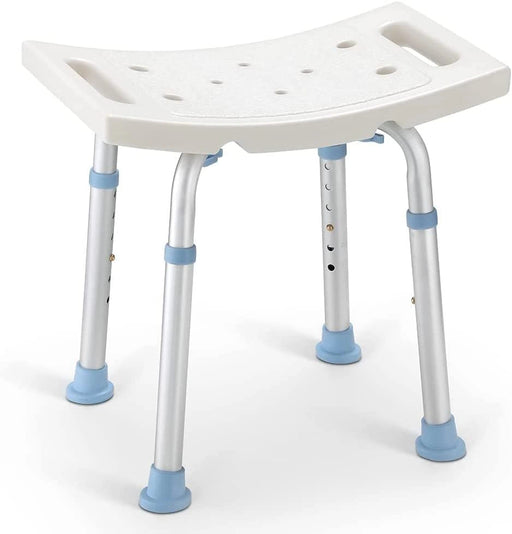7 Important Advice for Caregivers to Relieve Stress
In caring for a loved one, caregivers invest time, money, and energy. In spite of the fact that providing care to a loved one can be deeply rewarding, caretakers often encounter common difficulties that leave them overwhelmed, anxious, or intimidated by their duties. It is not easy for caregivers to handle a variety of challenges below:
- Isolation. Caregiving can be extremely time-consuming, particularly for caregivers who are also employed on top of their caregiving duties. Being occupied by another person so much of the time can make one feel isolated. As a caregiver, it is difficult to devote adequate time to the activities they once enjoyed or even think about those things which were important prior to becoming a caregiver.
- Burnout. Many caregivers suffer from burnout and they should be aware of the symptoms, including fatigue, withdrawal from friends, and irritability. In caregiver burnout, the caregiver ignores their own needs in order to focus all their attention on the person they care for. The concept of "selflessness" seems good at first, but it can be quite harmful in the long run. Caregiving, like overworking in other careers, can lead to burnout. In the end, caregivers neglect their own needs to the point where they are physically and emotionally exhausted, and they are unable to meet the needs of the individual they care for.
- Lack of professional resources. Family caregivers are often untrained or have little medical experience. Caregiving would be extremely challenging with no resources because it can be difficult to navigate complicated situations and make decisions that may affect one's health and wellbeing. Caregivers who lack access to reliable support and resources face added stress when making important medical decisions.
- Financial issues. In fact, family care providers are often burdened with many expenses. Caregivers who are both caring for and providing financial support to their elderly loved ones experience great levels of stress. The financial strain of being a family caregiver can be more considerable if they sacrifice a paying job to care for someone.
Yet, don't be scared by these challenges. Although caregiver duties will never be easy, the following advice can assist in reducing your workload, avoiding caregiver burnout, and helping you to achieve a better balance.
Advice
1. Asking for and accepting help
Support from others is crucial to preventing burnout. Do not hesitate to accept help from friends, neighbours, or other people. Identify things that you feel comfortable having someone else handle because many people they are unsure of what they can do while they'd like to offer help. For example, help make the home fall-proof by installing safety rails and bed rails which allows you to lighten the load. Just tell them what would make your life more bearable and they will feel better about being able to give a hand.
2. Taking a break
Every caregiver should be able to enjoy some time on their own. You should try to take at least one hour off each day from the loved ones you care for. During this time, you can relax, enjoy hobbies and interests, or exercise on your own while your mind recuperate. A few hours sitting at a coffee shop, watching a movie alone, going for a long walk, or visiting a nearby park with a good book are all excellent, restorative options that can help you prevent burnout.
3. Respite program
It is a great benefit for caregivers to have respite care which is often financially funded by the local government. The caregiver will benefit from a few hours of time off each day or every few days for self-care. Caregivers who are relaxed are happier caregivers. A respite caregiver covered by insurance often saves time, stress, and money for the family. Leaving your loved one with someone else can be stressful, so make a schedule of what needs to be done and if any medications are needed.
4. Stay connected
Maintaining relationships with others is necessary, not just those you are closely related to or those you provide care for. By helping you reduce isolation, you will also feel empowered to take care of yourself and others. For example, support groups can be a source of advice and encouragement for caregivers. It would be helpful to communicate with others, especially those in the same boat as you, to get support and information, as well as to take time off from being the caregiver. It is also possible to meet new people and make friends who understand what you are going through in support groups. Try to meet a mix of people for social support, such as online support groups, friends with whom you may have lost touch as your schedule has gotten busier, and new people you may meet in the community.
5. Keep informed
Thanks to the internet, caregivers can still manage to reach professional resources even with no medical background. Despite the fact that sometimes looking things up online will give questions or even unsettling results, it is definitely wise to do as much research as possible on the condition of the person you take care of. You will thus be prepared for any possible situations. Ask your doctor about reliable sources of materials and support if you want to make sure you are getting accurate information.
6. Maintain a spiritual foundation
It is proven that spirituality and religion can provide immense stress relief, health, and life satisfaction, so if you are religious, or have spiritual inclinations, now is the perfect time to rely on them, and find strength in your faith and spiritual community as well.
7. Stay healthy
To assure your ability to handle caregiving challenges, and to continue caring for others, the idea is to take good care of yourself - physically, mentally, and emotionally. There are many ways to look after yourself, from getting enough sleep to eating a healthful diet to exercising regularly. Do not hesitate to seek professional assistance if you feel fatigued, resentful, or burned out. It is also beneficial to schedule regular doctor appointments to maintain your health.
Being a caregiver can be an emotionally and physically draining task. For this reason, it's so important that you make the most of the various resources available to help you take care of your loved one. But more than thant, don't forget that you can't care for anyone else if you don't take care of yourself.
Recommend Products
-
 Sale
Sale
Standard - 300LBS Capacity Shower Stool
Original price $51.99From Original price $29.99Original price $51.99Current price $29.99From $29.99Current price $29.99OasisSpace Medical Square Shower Stool for Bathtub OasisSpace Square Shower Stool for Bathtub is approved as the highest standard(FDA) for medical...
View full detailsSaleOriginal price $51.99From Original price $29.99Original price $51.99Current price $29.99From $29.99Current price $29.99


